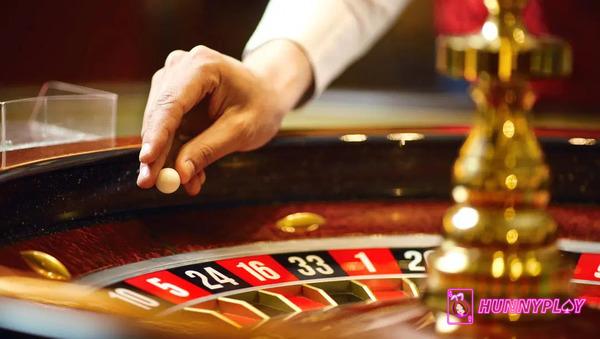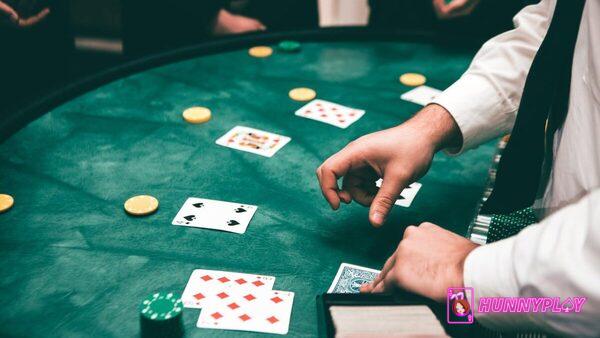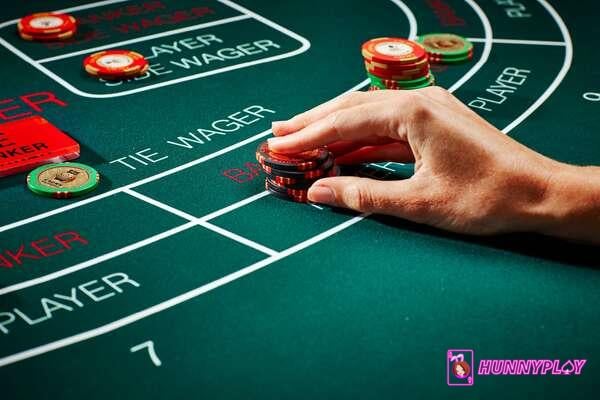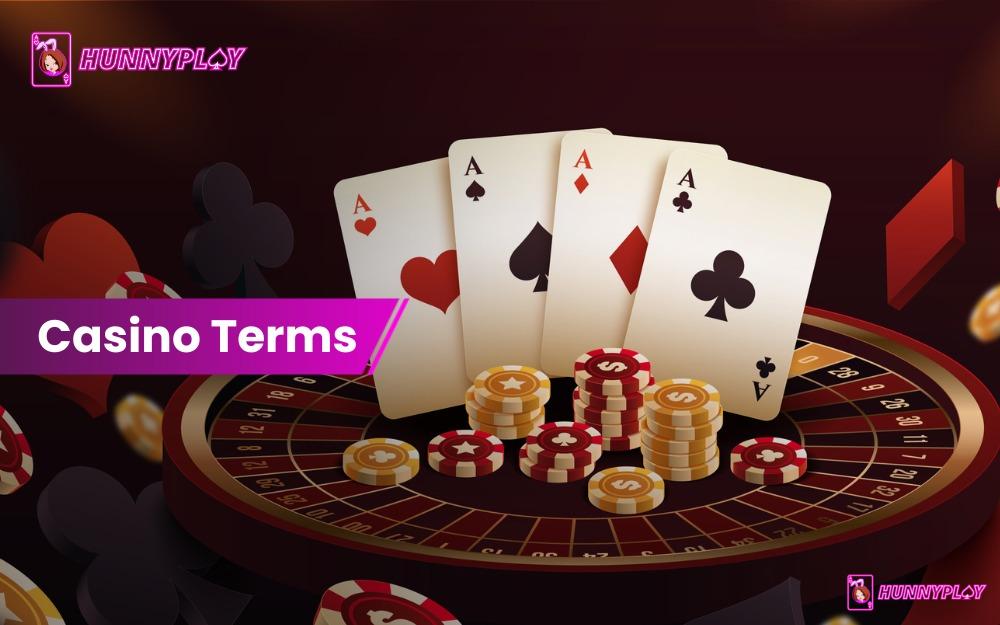Navigating the world of casinos can be daunting, especially if you’re unfamiliar with the jargon. From the buzzing casino floors to the expansive online platforms, understanding the language used in gambling is essential. This comprehensive guide will help you master the essential casino terms, ensuring you’re well-prepared for your next gaming experience.
The Basics: Must-Know Casino Terms
Before diving into specific gambling terminology, let’s start with some fundamental casino terms:
- House Edge: The statistical advantage that the casino holds over the players.
- Bankroll: The total amount of money a player has set aside for gambling.
- Payout: The money that a player receives from a winning bet.
- RTP (Return to Player): The percentage of all wagered money that a slot machine or casino game will pay back to players over time.
- High Roller: A player who bets large amounts of money.
- Comp: Complimentary items or services given to players by the casino, such as free meals, drinks, or rooms.
- Pit Boss: A casino employee who oversees the gaming tables and ensures the rules are being followed.
Casino Terminology – Table Game
Roulette
- American Wheel: The American version of roulette with a wheel that has 0 and 00 pockets.
- Cold Table: A popular gambling glossary for any table where players have been losing continuously.
- D’Alembert: A popular and classic betting system when making even money bets like Red/Black, Odd/Even, 1-18 or 19-36 where the player adds one unit to the stake instead of doubling it.
- En Prison: A rule that allows the player to recover his stakes after a spin of zero, provided the bet was even odds.
- European Wheel: A version of roulette wheel that has only a single zero (0).
- Inside Bets: A bet with lower odds but higher payouts in which the player places chips on the numbers in the central part of the table layout.
- Corner Bet: Wagering on four numbers at the same time forming a square, for example 17, 18, 20, and 21
- Five Bet: A combination of five numbers you hope to hit such as the zero, double zero, and the top line of numbers or 1, 2, and 3; in European roulette it’s four numbers
- Line Bet: Placing chips on six numbers at the intersection between the two lines along the side of the board
- Split Bet: A single wager on two neighboring numbers made by placing a chip on the line dividing them
- Straight up: A single bet on one number that pays out 35/1 if it hits
- Street Bet: Wagering on the outer grid line by forming one of the three consecutive numbers in a row
- La Partage: A feature where half of the stake is returned to the player, provided he has placed an even bet (Red/Black, 1-18, 19-36 or Even/Odd) and lost because the ball landed on zero.
- Orphelins: A combination of straight up and split bets where five chips are placed on the grid so that eight numbers are bet on paying out 35 to 1 and 17 to 1.
- Outside Bets: Bets placed on several numbers simultaneously on the outside of the layout or closest to the players. They are otherwise known as:
- Column Bet: Wagering on the ball landing on one of the three columns of 12 numbers
- Dozens Bet: Betting on a dozen numbers at once, such as 1-12, 13-24, or 25-36
- High or Low: Making a bet on high means that you’re wagering on numbers from 19-36 while betting on low refers to numbers 1-18
- Odd or Even: A bet where players place chips on odd or even; if the zero comes up, all bets on both odd and even lose
- Red or Black: Betting on the color since half of the numbers in roulette are red and the other half are black; if the ball lands on zero, players lose
- Snake Bet: A bet where you connect the numbers on the table to form an “S” shape resembling a snake
- Tiers: A type of bet where one chip is placed on each of the following splits: 5–8, 10–11, 13–16, 23–24, 27–30, and 33–36.
- Voisins: A special bet with 9 chips covering an area of 17 numbers on the roulette wheel close to zero but between 22 and 25 (for example 22, 18, 29, 7, 28, 12, 35, and 3).

Blackjack Jargon
- Ace Poor / Ace Rich: A term referring to card counting where either fewer or more aces have been dealt than is statistically expected.
- Anchorman: Also called the third base, it’s the last player to act before the dealer, seated furthest to the right of him.
- Basic Strategy: A collection of actions in blackjack that offers the best odds based on statistical probabilities.
- Bust: A term used to describe that either the player’s or dealer’s hand adds up to more than 21.
- Card Counting: A legal blackjack technique used to determine whether the player or the dealer has an advantage on the next hand by keeping a tally of cards in the deck. It is applicable only at the tables in land-based casinos.
- Color up: An action in which the player exchanges low denomination chips for the same value of higher value chips.
- Cut Card: A card inserted into the deck by the dealer after ‘cutting.’ Once he reaches the cut card while dealing, he knows it’s time to reshuffle the deck.
- Double Down: You can double the bet on the original two cards before the dealer gives another card.
- Double Exposure: A version of blackjack in which both of the dealer’s cards are dealt face up. It usually does not allow any insurance bet or surrender.
- Five-card Charlie: A hand in blackjack or automatic win with five cards that add up to less than 21 without busting.
- Hard Hand: Either a hand in blackjack that doesn’t have an Ace or a hand where the Ace counts as 1. For example, if the player has a 10, a 3 and an ace, the hand is called hard to prevent you from going over 21.
- Hit: A gesture or vocal instruction given by players to the dealer to request an extra card. It can be indicated in verbal form or by tapping the table.
- Hole Card: A card dealt face-down, which only the croupier is at liberty to check without anyone else from the table catching a peek.
- Insurance: A side bet offered to the player as insurance whose odds payout at 2/1 if the dealer’s up-card is an Ace. It protects you against the dealer getting a blackjack.
- NRSA: A specific rule in blackjack stating that splitting aces is not allowed, otherwise known as no resplitting aces.
- Pair: A hand with the first two cards of equal value, such as Ace, 2, 3, 4, 5, 6, 7, 8, 9 or 10 or Jack, Queen and King.
- Pat: A hand with a total of between 17 to 21 that usually doesn’t require a hit.
- Soft Double: A term used when players are doubling a hand with an ace.
- Soft Hand: A hand in blackjack where you have an Ace that can be counted as either one or eleven.
- Split: A type of bet that allows you to split a pair apart and play each one like two separate hands. For example, if you hold two sixes or two eights and split them into two hands, you’ll place your original bet with one hand and an equal bet on the second.
- Stand: To stand in blackjack means to end your turn. In land-based casinos, you usually do this by waving your hand horizontally.
- Stiff: A hard hand in blackjack in which the possibility to exceed 21 exists by drawing another card. It usually refers to 12, 13, 14, 15 or 16.
- Surrender: An option in which the player can fold a bad hand before drawing new cards.
- True Count: The count that reveals how many decks remain to be dealt from the shoe. If only one of six decks have been dealt, then we say it’s a high running count.
- Push: Making a tie with the dealer’s hand or a situation where nobody wins is called Push. It’s basically any result in which a player neither loses nor wins.
- Shoe: A gaming device in casinos that holds multiple decks of playing cards.
- Upcard: A term used for a card that the dealer is showing to the players.

Poker Casino Terms
- All-in: An action in which the player wagers all his remaining chips in the pot. It happens if he doesn’t have any chips left, has a strong winning hand, or wants to win the main pot by bluffing.
- Ante: A mandatory bet requiring all players at the table to put $1 or more in the pot before the start of each hand.
- Bluff: To bet or raise with a weak hand to deceive opponents.
- Call: To match a previous bet.
- Fold: To discard your hand and forfeit the round.
- Check: To pass the action to the next player without betting.
- Flop: The first three community cards dealt face-up in Texas Hold’em.
- Muck: Placing cards on the discard pile or sliding cards toward the dealer when you realize that you cannot win.
- Turn: The fourth community card in Texas Hold’em.
- River: The fifth and final community card in Texas Hold’em.
- Pot: The total amount of money or chips bet during a hand.
- All-in: An action in which the player wagers all his remaining chips in the pot. It happens if he doesn’t have any chips left, has a strong winning hand, or wants to win the main pot by bluffing.
- Ante: A mandatory bet requiring all players at the table to put $1 or more in the pot before the start of each hand.
- Bad Beat: A situation in which the player has one of the statistically strongest poker hands possible but loses to a higher-ranking hand.
- Blind: A mandatory bet that drives the action forward and prevents players from folding until they are dealt premium cards.
- Bluff: A bet or raise made with cards that are not the best hand to make your opponent fold.
- Call: Matching another player’s bet by putting the same amount of chips or more into the pot.
- Check: An act in which you keep the cards and pass the action to the next player on the left provided no-one has made a bet in the current round. You don’t have to put anything into the pot when checking, unless you’re playing a game with a big or a small blind.
- Community Cards: The cards that are dealt face up in the center, shared by all the players at the table.
- Draw: An action in which the player draws if he has a hand that is incomplete and needs further cards to stay in the game.
- Flop: The second betting round in Hold’em and Omaha poker where three community cards are revealed on the poker table.
- Fold: Letting go of cards or giving up on the hand when facing a bet or is your turn to act. The action applies to all forms of poker.
- Four of a Kind: A hand in poker where all four cards are of the same rank, plus any other card.
- Full House: A hand in poker consisting of a three of a kind and a pair.
- Muck: Placing cards on the discard pile or sliding cards toward the dealer when you realize that you cannot win.
- Nut: The strongest possible hand for any arrangement of cards that is considered unbeatable at any point in the game.
- Pair: Any two cards of the same rank.
- Pot: The sum of money that players wager during a single hand or game of poker.
- Raise: A betting action in which the player increases the opening bet. It also means to place an amount of chips in the pot greater than the amount needed to match the previous bettor.
- River: The final betting round in poker and most of its variants.
- Rake: A scaled commission fee taken by a cardroom or host operating the game. It is usually in the range of 2.5% to 10% of the pot for each poker hand.
- Royal Flush: A poker hand containing a straight from ten to ace and all five cards are of the same suit.
- Satellite: A lower buy-in qualifying event for poker tournaments that allows players to win an entry into a higher buy-in and more prestigious tournament like WSOP.
- Sit out: A term used when the player chooses to leave a table for a few hands but not longer than fifteen minutes. In that case, he has probably missed two rounds of blinds and is removed from the table.
- Showdown: A situation in poker where the remaining players after the last betting round expose and compare their cards to determine the winner. It can only happen if more than one player remains.
- Straight Flush: If you have any straight with all five cards of the same suit, it’s called Straight Flush.
Baccarat Casino Terms
- Action: The total amount of money bet over a certain period of time, either on a single round or across a full baccarat session.
- Baccarat: The name of the game. Also known as ‘Punto Banco’. Baccarat means ‘zero’ in Italian, and refers to a hand of zero value (the worst hand possible).
- Banco: Spanish for ‘banker’ or ‘bank’. The dealer in baccarat. Also known as a ‘shooter’.
- Banker Bet: One of the three bets you can make in baccarat. This is when you bet on the banker’s hand winning (as opposed to a ‘player bet’). Pays 1 to 1, but 5% commission is deducted from winning bets.
- Bankroll: The budget you have set aside for the baccarat session. Always play within your limits.
- Carte: The French equivalent of ‘hit’ in blackjack. Used to request another card from the dealer (if you have a total of seven or less).
- Commission: Winning banker and player bets are subject to a 5% commission. Also known as ‘vigorish’.
- Coup: A French term that refers to a round of play in baccarat.
- Croupier: A French term that refers to the ‘dealer’.
- Dealer: Also known as the ‘banco’ or ‘croupier’. The dealer is responsible for dealing cards and running the game. In some variations, the player may act as the dealer.
- Down Card: A card that is face down. Also known as a ‘hole card’.
- Face Cards: A card that is a Jack, Queen, or King of any suit. Each face card has a value of 0 in baccarat. Also known as a ‘monkey’.
- Hand: The cards that are played during a round of baccarat.
- House Edge: The mathematical advantage that the casino has over the player, often expressed as a percentage. Baccarat is known for its low house edge.
- La Grande: The best hand in baccarat – a natural 9. Also known as ‘The Big One’.
- La Petite: A natural baccarat that totals eight. Also known as ‘The Little One’.
- Natural: When the first two cards dealt a total either eight or nine. In some casinos, a ‘natural eight’ pays out at 2 to 1, while a ‘natural nine’ pays 3 to 1.
- Player Bet: One of the three bets you can make in baccarat. When you bet on the player’s hand winning (as opposed to a ‘banker bet’). Pays out at 1 to 1.
- Punter/Punto: The person playing the game. Also known as ‘punto’ in Spanish. Not to be confused with ‘player’, which usually refers to one of the three available bets in baccarat.
- Punto Banco: The most popular modern form of baccarat, where the ‘punto’ bets on whether the player or banker hand wins. Developed in Argentina in the 1940s.
- Push/Standoff: A tie – when both the player and banker hand has the same total. The stake is held over for the next round.
- Tie Bet: One of the three bets you can make in baccarat. Pays 8 to 1 (or sometimes 9 to 1).
- Upcard: A card turned face up.
- Banque: A variation of baccarat that is popular across Europe. Played with two players (plus the banker) across two conjoined tables.
- Burn Card(s): The top three to six cards that are discarded by the croupier after shuffling, before the start of a new game. A process known as ‘burning’.
- Caller: One of the casino staff members who is responsible for the cards on the baccarat table.
- Chemin De Fer: Also known as ‘European Baccarat’ or ‘Railroad’. One of the most popular baccarat variations. The player acts as the bank – dealing the cards and taking all bets.
- Cheques: The chips used in baccarat.
- Cheval: A type of bet made by two players. The bet is won when both players win, and lost when both players lose. If one player wins and the other loses, this is known as a ‘stand-off’.
- Cut/Cut Card: When dealers split the deck of cards (with a plastic card) after they are shuffled.
- Discard Tray: A tray that holds the cards that have been burned, played, or discarded for any reason.
- Dragon 7 Bet: A side bet. The bet is won if the dealer has three cards with a total of seven that beats the player’s hand. Pays 40 to 1.
- Dragon Bonus: A side bet. The bet is won if the player’s chosen hand wins by at least four points.
- Flat Bet: When a player bets the same amount consistently over a long period.
- Ladderman: One of the three dealers of baccarat; the dealer who runs the game.
- Loss Bet: A bet placed against the bank. Aptly named due to the higher house edge.
- Monkey: A ten or face card.
- Muck: A freshly shuffled ‘shoe’. Contains eight decks of 52 cards each.
- Palette: The long wooden stick used by croupiers for moving cards on the table.
- Panda 8 Bet: A side bet. The bet is won if the player has a three-card total of eight which beats the dealer’s hand. Pays 25 to 1.
- Pass: A win.
- Run: A side bet that lets you place bets on multiple hands.
- Shoe: The machine on the table that shuffled cards are placed in and dealt from. Contains six or eight decks of 52 cards to be used for the game.
- Shuffle Up: Refers to the early shuffling of cards by the dealer.
- Streak: Several wins or losses in a row; consecutive results.
- Super Pan Nine: A variation of baccarat. As opposed to betting on the player or dealer hand, the player is pitted against the dealer, and both start with three cards instead of two.

Slot Machine Slang
- Reels: The vertical sections of a slot machine that spin and display symbols.
- Payline: A line that crosses through the reels and determines winning combinations.
- Wild Symbol: A symbol that can substitute for other symbols to form winning combinations.
- Scatter Symbol: A symbol that can trigger bonus rounds or free spins, usually without needing to be on a payline.
- Progressive Jackpot: A jackpot that increases each time the game is played but not won.
- Bonus Round: An extra game feature that offers additional chances to win, often triggered by specific symbols.
Keno, Lottery, and Bingo Casino Terms
Keno Terms
- Spot: A number selected by the player.
- Draw: The set of winning numbers randomly selected.
- Ticket: The card where the player marks their chosen numbers.
- Catch: A number selected by the player that matches a drawn number.
Lottery Terms
- Quick Pick: A random selection of numbers generated by the lottery terminal.
- Draw Date: The date when the winning numbers are selected.
- Jackpot: The top prize in a lottery game.
- Multiplier: An option that increases the prize amount for non-jackpot winnings.
Bingo Terms
- Bingo Card: A card with a grid of numbers used to play bingo.
- Dauber: A marker used to mark called numbers on a bingo card.
- Coverall: A bingo game where players must mark all numbers on their card to win.
- Pattern: The specific arrangement of marked numbers needed to win a bingo game.
Sports Betting Terms
- Spread: The number of points by which the favored team is expected to win.
- Moneyline: A bet on which team will win outright, regardless of the point spread.
- Over/Under: A bet on whether the total points scored by both teams will be over or under a specified number.
- Parlay: A single bet that links two or more individual bets, all of which must win for the parlay to pay out.
- Teaser: A type of parlay that allows the bettor to adjust the point spreads for the games.
- Prop Bet: A bet on a specific event or outcome within a game, such as which player will score first.
Online Casino Terminology (Bonuses, Wagering Requirements, and More)
- Welcome Bonus: A bonus offered to new players upon signing up and making their first deposit.
- No Deposit Bonus: A bonus given without requiring a deposit, usually to new players.
- Free Spins: Spins on a slot machine given for free, often as part of a promotion.
- Wagering Requirement: The number of times a player must bet the bonus amount before it can be withdrawn.
- Rollover: Another term for wagering requirements.
- VIP Program: A loyalty program offering rewards to frequent players.
- Cashback: A percentage of losses returned to the player.
Responsible Casino Terms
- Self-Exclusion: A program that allows players to voluntarily ban themselves from gambling for a specified period.
- Deposit Limit: A limit set by the player on how much money they can deposit over a specific period.
- Loss Limit: A limit on how much money a player can lose over a set period.
- Time-Out: A short-term break from gambling, usually 24 hours to a few weeks.
- Problem Gambling: Gambling behavior that disrupts personal or professional life.
- Responsible Gambling: Practices and policies designed to minimize the harmful effects of gambling.
Conclusion
Understanding casino lingo is crucial for anyone looking to navigate the world of gambling confidently. Whether you’re a seasoned player or a complete novice, familiarizing yourself with these terms will enhance your gaming experience at HunnyPlay and help you make more informed decisions. Remember, gambling should always be approached responsibly, with an awareness of the risks and a focus on maintaining control. Happy gaming!




















